In an era where transparency and efficiency are paramount, blockchain technology is revolutionizing supply chain management. By providing a decentralized and immutable ledger, it enables companies to track products from origin to destination with unparalleled accuracy. This innovation not only enhances accountability but also fosters trust among stakeholders in an increasingly complex global market.
As businesses face challenges like fraud, delays, and lack of visibility, blockchain emerges as a game-changer. It streamlines processes, reduces costs, and minimizes risks associated with traditional supply chain methods. With its potential to transform logistics and procurement, understanding how blockchain integrates into supply chains is crucial for companies looking to stay competitive in today’s fast-paced environment.
Table of Contents
ToggleOverview of Blockchain in Supply Chain
Blockchain technology revolutionizes supply chain management by enabling transparency and traceability in every transaction. Companies utilize decentralized and immutable ledgers to create an accurate record of product journey, from raw materials to end users. Stakeholders can access real-time data, fostering improved collaboration among suppliers, manufacturers, and distributors.
Key Benefits
- Enhanced Visibility: Blockchain offers a comprehensive view of the supply chain, enabling stakeholders to monitor the movement and condition of products.
- Increased Security: Transactions recorded on a blockchain are encrypted, reducing the risk of fraud and unauthorized alterations.
- Streamlined Processes: Automation through smart contracts minimizes administrative tasks and accelerates transaction times, improving overall efficiency.
- Cost Reduction: By eliminating intermediaries and optimizing operations, blockchain decreases costs associated with delays and disputes.
Challenges Addressed
- Traceability Issues: Blockchain allows for effortless tracking of each product’s origin and processing steps, solving problems related to mislabeling and counterfeit goods.
- Data Silos: A unified blockchain reduces information fragmentation between disparate systems, promoting cohesive data sharing.
- Risk Mitigation: Real-time updates help identify and resolve issues quickly, reducing the likelihood of disruptions.
Incorporating blockchain into supply chain practices enhances competitive advantage, showcasing commitment to innovation and operational excellence.
Benefits of Blockchain in Supply Chain

Blockchain technology delivers significant advantages in supply chain management by enhancing transparency, traceability, and security. These benefits foster greater trust and efficiency among stakeholders.
Increased Transparency
Blockchain technology achieves increased transparency in supply chains by enabling all parties to access real-time data regarding transactions. Each participant has visibility into the entire journey of a product, from its origin to delivery. This shared ledger minimizes discrepancies and fosters trust between producers, distributors, and consumers. For example, a study by IBM shows that businesses using blockchain enhance their data accuracy by 50%, significantly improving stakeholder relationships.
Improved Traceability
Blockchain enhances traceability by allowing users to track products at every stage of the supply chain. Each transaction creates a permanent record, making it easy to trace back through the chain to identify issues or verify authenticity. This capability assists in quickly locating sources of contamination during recalls, reducing risks and safeguarding public health. With 77% of companies claiming improved traceability through blockchain, the technology empowers businesses to take proactive measures against potential product failures.
Enhanced Security
Blockchain technology strengthens security in the supply chain by utilizing cryptographic techniques to secure transaction records. This decentralized nature prevents unauthorized access and reduces the risk of fraudulent activities. The immutability of blockchain ensures that once a transaction is recorded, it cannot be altered or deleted, which protects against data manipulation. According to a report by Accenture, 80% of executives believe that blockchain will enhance transaction security across their supply chains.
Challenges of Implementing Blockchain in Supply Chain
Implementing blockchain in supply chain systems presents several challenges that companies must navigate to realize its full potential. Key challenges include technical barriers and regulatory concerns.
Technical Barriers
Technical barriers significantly impede the adoption of blockchain in supply chains. Integration with existing systems poses challenges, as many current legacy systems are unable to seamlessly connect with blockchain technology. High initial setup costs present another hurdle for companies, making it difficult to justify investment without guaranteed returns. Interoperability among various blockchain platforms creates friction, as different networks often lack the ability to communicate effectively. Additionally, personnel training is essential; employees must possess the necessary skills to navigate and leverage blockchain technology. A lack of sufficient technical expertise can derail implementation efforts.
Regulatory Concerns
Regulatory concerns present a significant challenge in adopting blockchain for supply chains. Governments worldwide are still developing regulations governing blockchain technology, leading to uncertainty for businesses. Compliance with existing data protection laws, such as the General Data Protection Regulation (GDPR) in Europe, raises further complexities. Supply chain companies must ensure that their blockchain solutions align with these regulations, complicating the implementation process. Furthermore, variability in regulatory frameworks across regions creates additional compliance burdens for businesses operating globally. Consequently, understanding and navigating these regulatory landscapes is crucial for successful blockchain adoption in supply chains.
Real-World Applications of Blockchain in Supply Chain
Blockchain technology plays a pivotal role in various supply chain applications, enhancing efficiency and security across industries. This section examines real-world implementations of blockchain, highlighting its impact on food safety and pharmaceutical distribution.
Case Study: Food Safety
In the food industry, blockchain enhances traceability and safety. Walmart uses this technology to track the provenance of food products, significantly reducing the time required to trace contaminated food items. By implementing a blockchain solution, Walmart cut down the traceability time from seven days to mere seconds. The system enables all partners in the supply chain, from farmers to retailers, to access real-time data regarding the journey of food products. This transparency increases trust among consumers and reduces the risk of foodborne illnesses.
Case Study: Pharmaceutical Distribution
In pharmaceutical distribution, blockchain improves security and reduces fraud. The MediLedger Project illustrates this application, enabling pharmaceutical companies to ensure that drugs are authentic and safely stored. Through blockchain, each transaction of drug sales is recorded permanently and is accessible by authorized users, ensuring transparency. A study by the Pharmaceutical Distribution Security Alliance shows that deploying blockchain in pharmaceutical supply chains can reduce counterfeit drugs by up to 40%. By automating compliance processes and maintaining an unchangeable record of drug movement, blockchain effectively mitigates risks related to drug recalls and ensures patient safety.
Future Trends in Blockchain for Supply Chain
Future trends indicate blockchain’s continued evolution in supply chain management, focusing on deeper integration, greater automation, and enhanced democratization of data access.
- Increased Adoption of Smart Contracts
Increased adoption of smart contracts automates and enforces agreements between parties without intermediaries. These self-executing contracts reduce delays and disputes by triggering actions, like payments or shipments, based on predefined conditions being met.
- Expansion of Consortium Blockchains
Expansion of consortium blockchains enhances collaboration among companies in similar industries. By forming organizations with shared governance structures, participants can maintain transparency while controlling access to sensitive information.
- Interoperability Solutions
Interoperability solutions enable different blockchain networks to communicate, enhancing data sharing across platforms. This allows organizations to benefit from diverse networks, improving overall supply chain performance.
- Integration with Internet of Things (IoT)
Integration with IoT devices creates real-time data exchanges between physical assets and the blockchain. Sensors can track conditions like temperature and humidity throughout transport, ensuring product integrity and providing actionable insights.
- Sustainability Tracking
Sustainability tracking through blockchain records environmental impacts throughout the supply chain. Companies can verify compliance with sustainability standards and report on their carbon footprint accurately, meeting consumer demands for responsible practices.
- Advanced Analytics and AI Integration
Advanced analytics and AI integration provide deeper insights from blockchain data. Predictive analytics can help organizations anticipate issues and optimize their operations based on real-time data patterns.
- Regulatory Compliance Enhancements
Regulatory compliance enhancements through blockchain streamline adherence to ever-evolving regulations. Automated reporting and immutable records simplify audits and reduce risks of non-compliance.
- Customizable Blockchain Solutions
Customizable blockchain solutions allow businesses to tailor their systems to specific needs. Organizations can modify functions, privacy settings, and user experiences, ensuring the technology aligns with their operational strategies.
By focusing on these future trends, organizations can harness blockchain technology’s full potential, driving efficiency and transparency in supply chains for years to come.
Blockchain technology is reshaping supply chain management by enhancing transparency and security. As companies adopt this innovative approach, they can streamline operations and foster trust among stakeholders. The ability to track products in real-time not only mitigates risks but also boosts efficiency across various industries.
While challenges like technical barriers and regulatory issues remain, the potential benefits far outweigh these obstacles. Organizations that embrace blockchain will likely lead the way in operational excellence and innovation. The future of supply chains is bright with blockchain at the helm, promising a more secure and efficient landscape for businesses and consumers alike.








